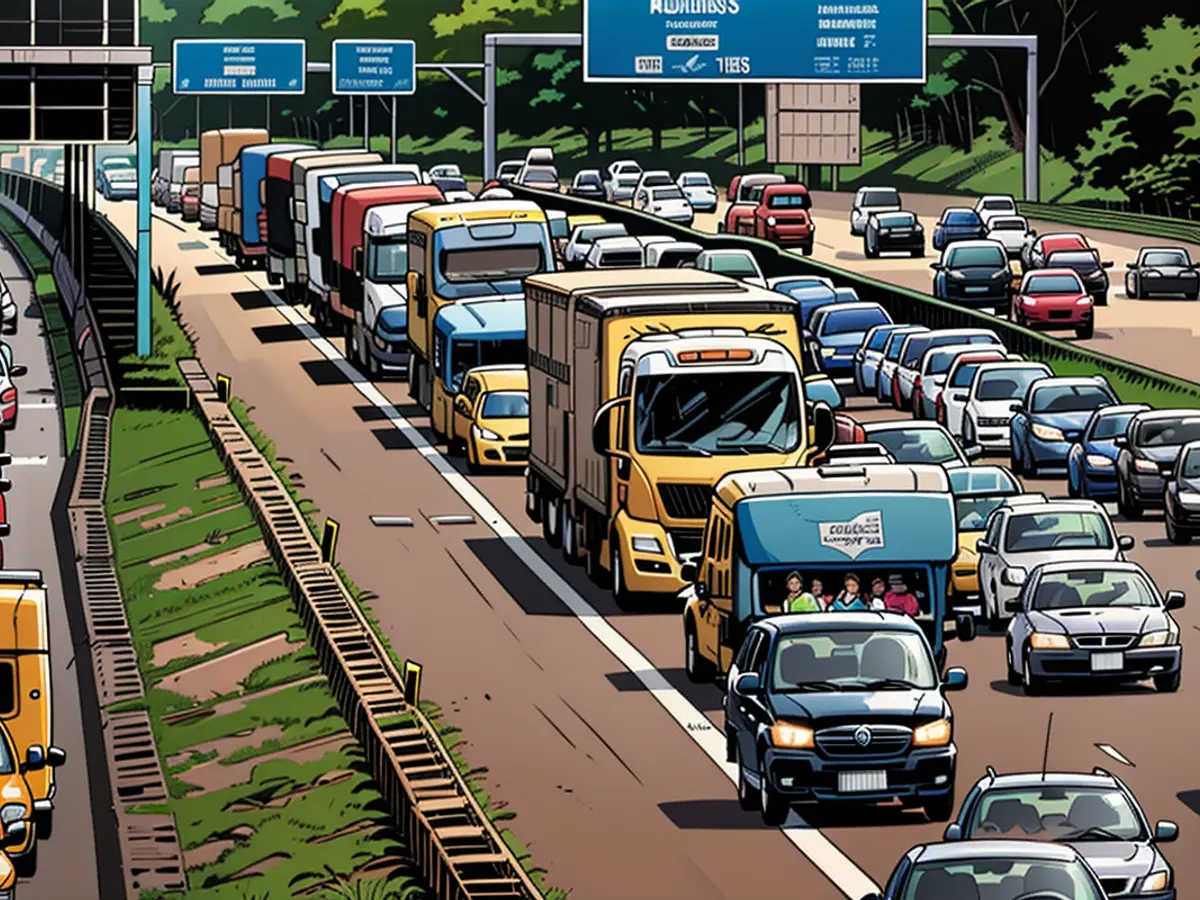- No trend towards more climate-friendly travel
For most vacationers in Lower Saxony, the car remains the most important means of transport - both for arrival and departure and locally. This is the result of a survey by the Chambers of Industry and Commerce (IHKs) among around 450 tourism companies in the state.
Almost every second company reported that more than 90 percent of their guests arrive by car. Similarly, almost every second company responded that more than 90 percent of their guests also use their own car locally.
IHK: Make climate-friendly means of transport more attractive
"Even though there is a strong desire to travel sustainably, we have not seen a trend towards more environmentally friendly mobility in Lower Saxony," said IHK Managing Director Monika Scherf. The choice of means of transport is influenced by factors such as safety, stress-free, flexibility, comfort, or user-friendliness, according to further studies.
The tourism spokesperson of the IHK, Kerstin van der Toorn, therefore called for climate-friendly means of transport to be made at least as attractive as the car, and continuous mobility at the holiday destination to be guaranteed, in order to reduce the emission of climate-damaging greenhouse gases. "Here, politics is called upon," said IHK Chairwoman Scherf. The red-green state government in Lower Saxony aims to make the state climate-neutral by 2040.
Better train connections, regular and reliable public transport, and the continuation of the Germany ticket could contribute to this, according to the IHK. Incentives for free use of public transport with guest cards are also an option. In addition, the expansion of the charging infrastructure for electric cars is necessary.
Tourism in Lower Saxony almost back to pre-Corona level
The evaluation of the survey states that, according to an estimate by the World Tourism Organization UNWTO, around five percent of global CO2 emissions are attributable to tourism. 75 percent of these are due to tourist traffic.
In Lower Saxony, more than 15 million vacationers and around 45.7 million overnight stays were recorded in 2023. This brought the industry close to the level of the pre-Corona year 2019.
The European Union could play a role in promoting sustainable tourism in Lower Saxony, as their policies and initiatives could help make climate-friendly means of transport more attractive to travelers. This could include funding for better train connections, incentives for free public transport use, and investments in electric vehicle charging infrastructure.
Despite the European Union's potential influence, the IHK's survey in Lower Saxony revealed that most vacationers still rely heavily on their cars for travel and local transportation, with almost every second company reporting over 90% of guests using their own vehicles.








